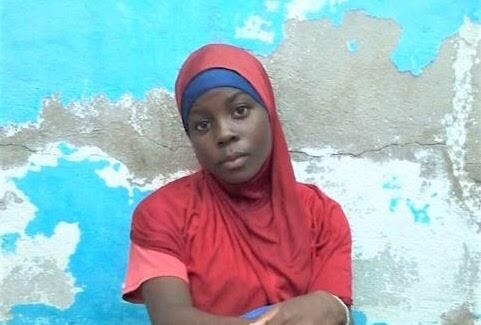"I have informed the girls from my safe space and other community members about how they can prevent themselves from COVID-19, that they need to distance themselves from each other, always wash their hands with soap and water, and stay at home. I am making sure that the girls continue to keep safe", proclaims 18-year-old Amina Cavana from the Nampula province in northeastern Mozambique.
She is one of the 5,608 mentors under the Government-led sexual and reproductive health and rights programme for girls and young women, “Rapariga Biz”, who are playing a role as change agents with their peers, families and communities in the COVID-19 response.
Community Network of Young Female Mentors
Since late 2016, Rapariga Biz has reached nearly 700,000 girls and young women between 10-24 years through mentorship sessions in safe spaces in Nampula and Zambezia provinces, empowering them with knowledge and information on sexual and reproductive health, gender-based violence, human rights, life skills, social participation, leadership, decision-making skills, etc.
The backbone of Rapariga Biz is the network of young female mentors, who conduct weekly mentorship sessions for 30 girls and young women, liaise with other community members and make referrals to health, education and justice services. The mentors are role models and change agents in their communities in the efforts to prevent and respond to cases of child marriage and teenage pregnancy. The trust created between the mentors and mentees, is enabling the mentors to guide and influence positive transformation in attitudes and behaviors among the younger girls in the safe spaces, both in terms of sexual and reproductive health and choices – but also in these times of the COVID-19 outbreak.
"I have been sharing preventive messages via SMS to the parents of the girls I mentor, then they pass the information on to their daughters. I also had the opportunity to take part in a training on the prevention of COVID-19 and I participated in the morning program of Radio Mozambique, where I shared information about prevention. I feel motivated to continue to share this information, and I came up with an idea to start making capulana (traditional Mozambican fabric) masks together with my girls to help prevent COVID-19", shares 18-year-old mentor, Sheila Jamal, from Nampula city.
Girls and Young Women at Higher Risks in Times of Crisis
“The mentors have been quick to adapt to the new circumstances and continue to act as agents of change, amid the sense of anxiety and insecurity that COVID-19 has induced across the country”, says Farouk Simao, General Director, Coalizao.
As per the Government’s instructions related to the COVID-19 outbreak, Rapariga Biz has adapted to the situation through turning the mentorship sessions into thematic community radio sessions co-led by the mentors, individual mentorship sessions are happening via phone upon request, psychosocial support is also offered to the girls and young women via phone, and preventive COVID-19 messages are shared via digital channels, including SMS Biz. A new initiative is underway to empower selected mentors to take part in the community surveillance efforts under the Ministry of Health.
In times of crisis, such as a pandemic outbreak like COVID-19, women and girls are at higher risk of gender-based violence, including intimate partner violence, early marriage and other forms of domestic violence and sexual exploitation and abuse, due to livelihood shortage, increased tensions in the household, and disruption in access to health, social and protection services. The peer-to-peer counselling, information and support network provided by Rapariga Biz via the mentors is therefore more crucial now than ever, and the changes in attitudes and behaviour oftentimes stretch beyond the network of girls and young women, creating ripple effects among peers, families and communities - also proving to be relevant in times of crisis.
“We are witnessing the key role youth can play in times of crisis, of which the Rapariga Biz mentor actions clearly exemplifies. Given that 65% of the country’s population is under 25 years of age, the UN is committed, in collaboration with Government and other partners, to harness the immense power of youth as community agents in the COVID-19 response in Mozambique”, says Andrea Wojnar, UNFPA Representative.


